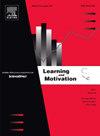学习者的人工智能素养和适应能力在促进他们在基于人工智能的环境中的参与和动机中的作用:从成就目标理论的角度
IF 1.8
4区 心理学
Q3 PSYCHOLOGY, BIOLOGICAL
引用次数: 0
摘要
在不断变化的教育视角中,人工智能(AI)正在彻底改变传统的教学方法,提高学习者的动机和参与度,这是学习者成功的重要心理因素之一。人工智能素养对于有效地将人工智能工具纳入教育至关重要;然而,许多学习者缺乏使用这些技术的必要技能。此外,复原力对于在基于人工智能的环境中保持动力和参与至关重要。因此,本研究试图以成就目标理论(AGT)为理论框架,探讨人工智能素养和弹性对基于人工智能环境下学习者的参与和动机的影响。为了达到这一目的,585名学习者参加并回答了四个量表,其中461份有效问卷。本研究利用结构方程模型(SEM)来研究这些变量之间的相互作用。结果表明,弹性和人工智能素养都是动机的显著预测因子,共同解释了26.9 %的方差。然而,人工智能素养被证明是一个更强的预测因素,与解释了6.5 %的方差的弹性相比,它唯一地解释了10.7 %的方差。关于敬业度,两个变量也是显著的预测因子,共同解释50.4 %的方差。在这里,弹性被发现是一个更好的预测因素,可以唯一地解释敬业度得分的23.6% %的方差,而人工智能素养可以唯一地解释12. %的方差。最后,这些发现强调了人工智能素养和弹性在培养学习者的参与度和积极性方面的关键作用。研究结果强调,有必要制定人工智能扫盲计划和恢复力建设战略,以优化基于人工智能的教育环境中的学习成果。本研究强调了AGT作为理解这些关系背后机制的理论视角的价值,并为旨在创造支持性、技术增强的学习环境的教育工作者提供了可操作的见解。本文章由计算机程序翻译,如有差异,请以英文原文为准。
The role of learners’ AI literacy and resilience in boosting their engagement and motivation in AI-based settings: From an achievement goal theory perspective
In the changing educational perspective, artificial intelligence (AI) is revolutionizing conventional teaching methods, boosting learners’ motivation and engagement, which are among the vital psychological factors in learners' success. AI literacy is crucial for efficiently incorporating AI tools into education; however, many learners lack the necessary skills to engage with these technologies. Furthermore, resilience is vital for sustaining motivation and engagement in the difficulties presented by AI-based settings. As a result, this research tries to investigate the influence of AI literacy and resilience on learners' engagement and motivation within AI-based settings, using Achievement Goal Theory (AGT) as a theoretical framework. To reach this aim, 585 learners attended and answered the four scales, but among them, 461 questionnaires were valid. This research utilizes structural equation modeling (SEM) to investigate the interaction among these variables. The results indicated that resilience and AI literacy were both significant predictors of motivation, jointly explaining 26.9 % of its variance. However, AI literacy proved to be a stronger predictor, uniquely accounting for 10.7 % of the variance, compared to resilience, which explained 6.5 % of the variance. Concerning engagement, the two variables were also significant predictors, jointly explaining 50.4 % of its variance. Here, resilience was found a better predictor uniquely explaining 23.6 % of the variance in engagement scores, while AI literacy could uniquely explain 12.3 % of its variance. Finally, these findings highlight the critical roles of AI literacy and resilience in fostering learners’ engagement and motivation. The results emphasize the need for developing AI literacy programs and resilience-building strategies to optimize learning outcomes in AI-based educational environments. This study underscores the value of AGT as a theoretical lens for understanding the mechanisms underlying these relationships and offers actionable insights for educators aiming to create supportive, technology-enhanced learning settings.
求助全文
通过发布文献求助,成功后即可免费获取论文全文。
去求助
来源期刊

Learning and Motivation
Multiple-
CiteScore
2.90
自引率
0.00%
发文量
53
期刊介绍:
Learning and Motivation features original experimental research devoted to the analysis of basic phenomena and mechanisms of learning, memory, and motivation. These studies, involving either animal or human subjects, examine behavioral, biological, and evolutionary influences on the learning and motivation processes, and often report on an integrated series of experiments that advance knowledge in this field. Theoretical papers and shorter reports are also considered.
 求助内容:
求助内容: 应助结果提醒方式:
应助结果提醒方式:


